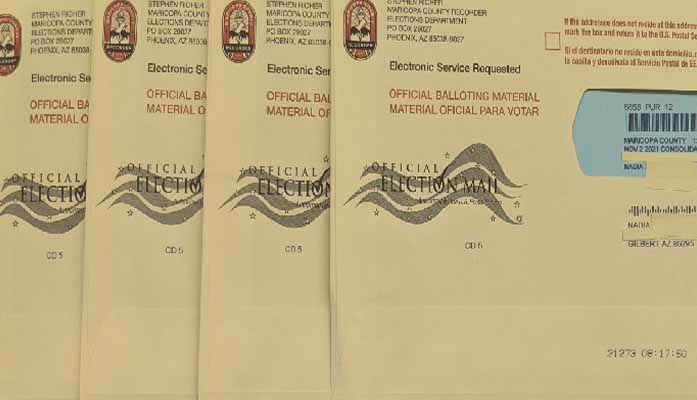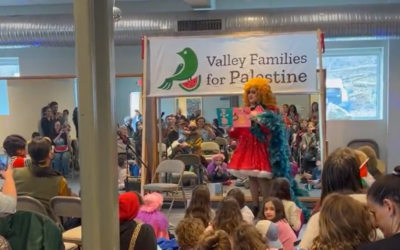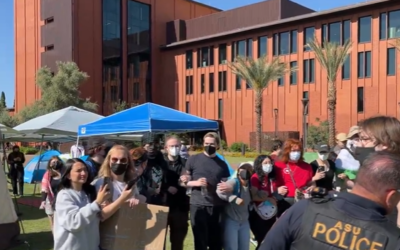By Corinne Murdock |
Phoenix resident Brian Anderson received a surprise last week when he checked the contents of his newly-registered UPS mailbox: a mail-in ballot made out to a woman who has lived in Fulton County, Georgia for the past decade.
“This person appears to have been living (and voting!) in Fulton County, Georgia since at least 2015,” said Anderson. “Yet her Maricopa ballots presumably have been mailed to this UPS box every election for the past decade?”
Anderson later reported that he marked the ballot as invalid and returned it to USPS.
Registered voters may obtain a mail-in ballot by either joining the Active Early Voting List (AEVL) or making a one-time request for such a ballot. Under AEVL, voters may receive early ballots by mail indefinitely, so long as they vote at least once every two election cycles, or four calendar years.
Anderson shared with AZ Free News what he’d discovered through public records: the woman named on the ballot had moved out of Arizona around 2013, and has voted in Georgia elections since at least 2016.
“I just don’t understand how no one has marked this lady as inactive after a decade,” said Anderson.
The continued mailing of ballots to ineligible voters doesn’t necessarily mean that those voters have voted in recent past elections.
Under a law passed in 2021 turning the Permanent Early Voting List (PEVL) into AEVL, SB1485, voters are supposed to be removed from AEVL if they haven’t cast an early ballot over the course of two consecutive federal election cycles and fail to respond within 90 days to a mailed notice from the county recorder. Such a response would have to include a written confirmation of that voter’s desire to remain on AEVL, along with their address and date of birth.
Removal from AEVL doesn’t cancel a voter’s registration, and doesn’t preclude the voter from rejoining AEVL.
The law is under ongoing litigation launched by progressive activists currently: Mi Familia Vota v. Fontes. They allege that the laws violate the First, Fourteenth, and Fifteenth Amendments along with the Voting Rights Act by imposing a greater barrier to vote that disproportionately impacts non-white individuals.
The implementation of AEVL is also under the subject of another lawsuit from Arizona’s GOP legislative leaders challenging Secretary of State Adrian Fontes’ Election Procedures Manual (EPM). They alleged that Fontes’ EPM contradicts the implication of SB1485.
Instead of county recorders issuing notices to AEVL members who didn’t cast an early ballot over the 2022 or 2024 election cycles in 2025, Fontes’ EPM directs county recorders to send notices to AEVL members who didn’t vote by early ballot in the 2024 or 2026 election cycles. The GOP leaders argued that the scope of SB1485 included the 2022 election cycle, though Fontes contended that the cycle predated the law’s passage since the cycle began on Jan. 1, 2021.
Corinne Murdock is a reporter for AZ Free News. Follow her latest on Twitter, or email tips to corinne@azfreenews.com.








